Leading with the Word and Action: Pastor Wilson Champions FMNR in Elgeyo Marakwet County
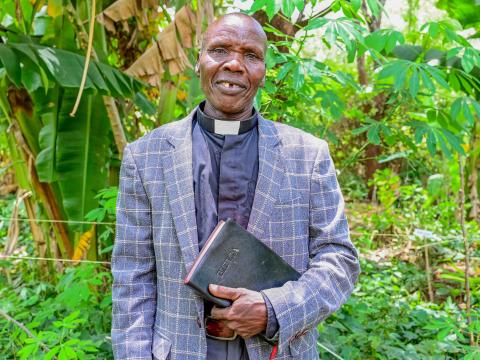
In the village of Koitilial, Arror location, Elgeyo Marakwet County, lives Pastor Wilson Kilimo, a small-scale farmer, spiritual leader, and passionate environmentalist. His farm that was once considered barren and unsuitable for agriculture, is now a thriving model of regeneration and abundance, all thanks to the practice of the Farmer Managed Natural Regeneration (FMNR) approach which he began in 2021.
“People laughed when I bought this land,” Pastor Wilson recalls. “Since the 1960s, no one believed anything could grow here. But through FMNR, I’ve transformed it into a food basket.”
On his eighth-of- an-acre plot, Wilson now grows a wide variety of crops including bananas, cassava, sugarcane, red cayenne peppers, variety of mangoes, vegetables, and sweet potatoes. These not only feed his family but earn him income that helps pay school fees for his children. From an initial investment of 5,000 KES (38.82 USD) that he used to prepare and transform his land, the farm has yielded over 500,000 KES (3869.97 USD) in profit.
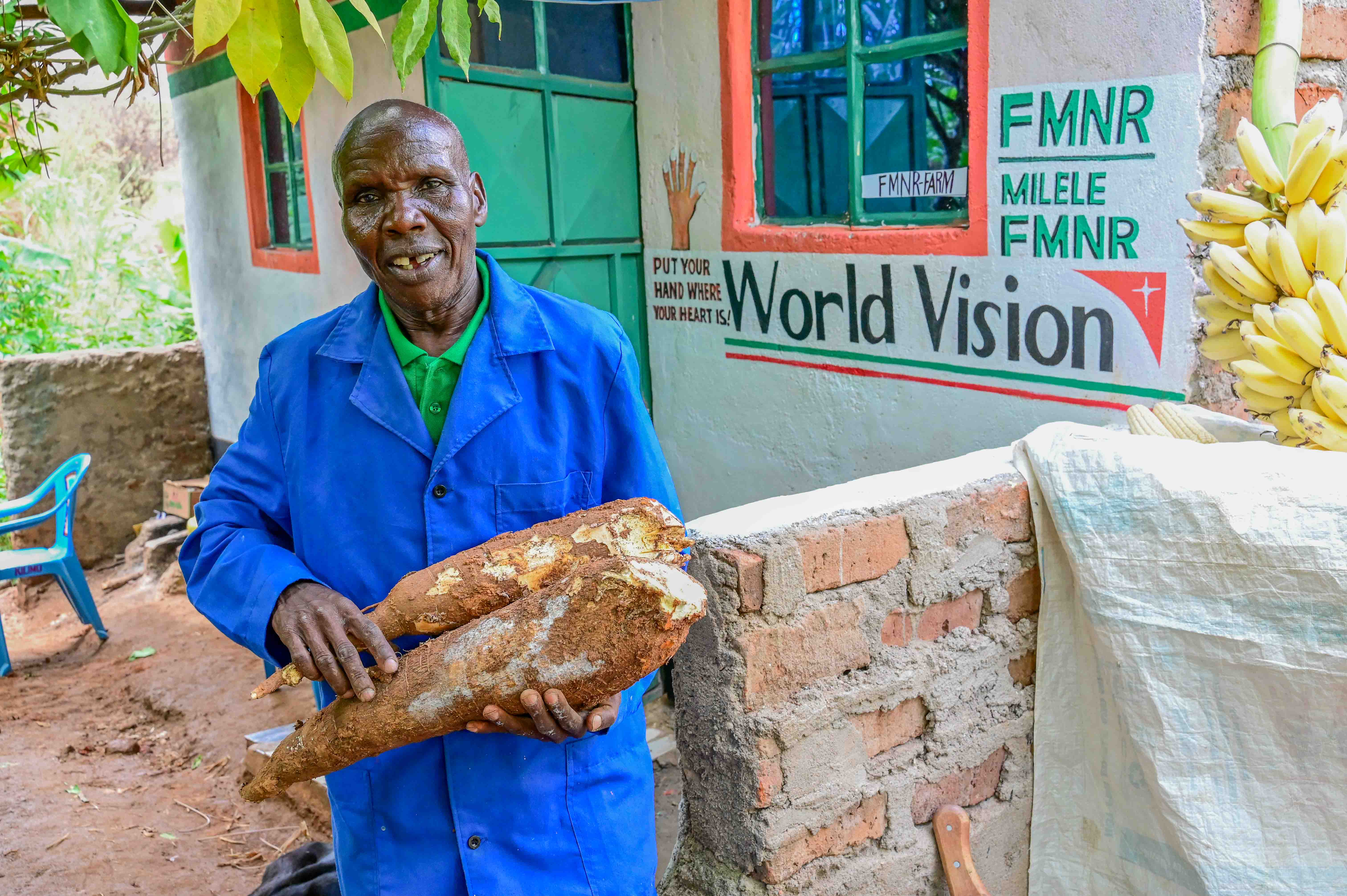
“I no longer buy food,” Wilson proudly shares, “We have enough here and breakfast now comes from cassava or sweet potatoes grown on the farm instead of buying bread.” Every month, Wilson earns at least 30,000 KES (232.20 USD) from selling his farm produce.
FMNR has brought more than just food to Wilson’s homestead. He speaks passionately about the birds that have returned to his trees, playing vital roles in seed dispersal, crop diversity and biodiversity. “They are my alarm clock,” he says with a smile, “Every morning at 6 a.m., one pecks at my window. Thanks to them, I have crops like tomatoes, black nightshade and even neem tree.”
Through trainings by World Vision’s Central Rift Farmer Managed Natural Regeneration Scale-Up Project (CRIFSUP), Pastor Wilson embraced not only FMNR but also Empowered Worldview, learning about climate-smart agriculture, disaster preparedness, and economic resilience. He now mentors others and has trained over 15 replicate farmers in his community, of whom seven are actively practicing FMNR.
One of them is Evans Kiplagat, his neighbor and church congregant.
“We met in church where he first taught us about FMNR,” says Evans. “He later came to my homestead and helped me start practicing FMNR. Now, I have over 30 indigenous trees and 40 mango trees. We no longer cut down trees aimlessly and burn charcoal. Now, I use pruned branches for firewood and sell honey from beehives placed on the indigenous trees.”
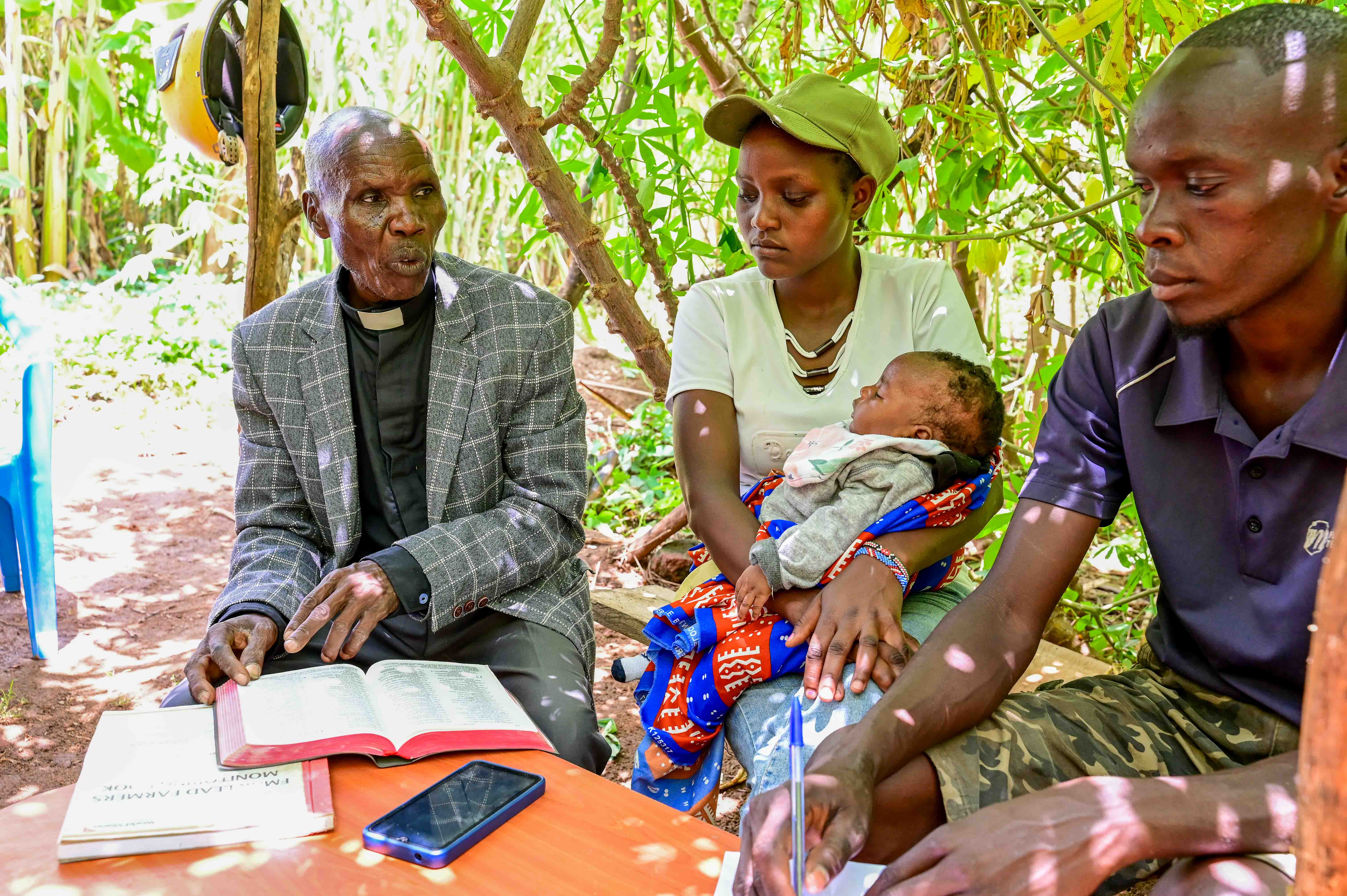
Another farmer, Shavine Cherop, reflects on the profound change FMNR has brought to her land and family.
“Before, our land was rocky and infertile. We used to walk three hours uphill to find firewood. Now, we prune and dry branches from our trees at home. We have enough food from the farm such as bananas and cassava that are healthy for my two children. I also sell the surplus to earn income for my household. As women, we feel empowered.”
The transformation stretches beyond individual farms. Maximilla Kanda, CRIFSUP Project Officer, World Vision, highlights how the FMNR practice is reshaping the region, “This area was degraded. Now, after FMNR, there’s increased tree cover, better air quality and improved yields. We’ve trained farmers on FMNR, soil and water conservation, Integrated Pest Management, savings groups and more, all aimed at building more resilient communities.”
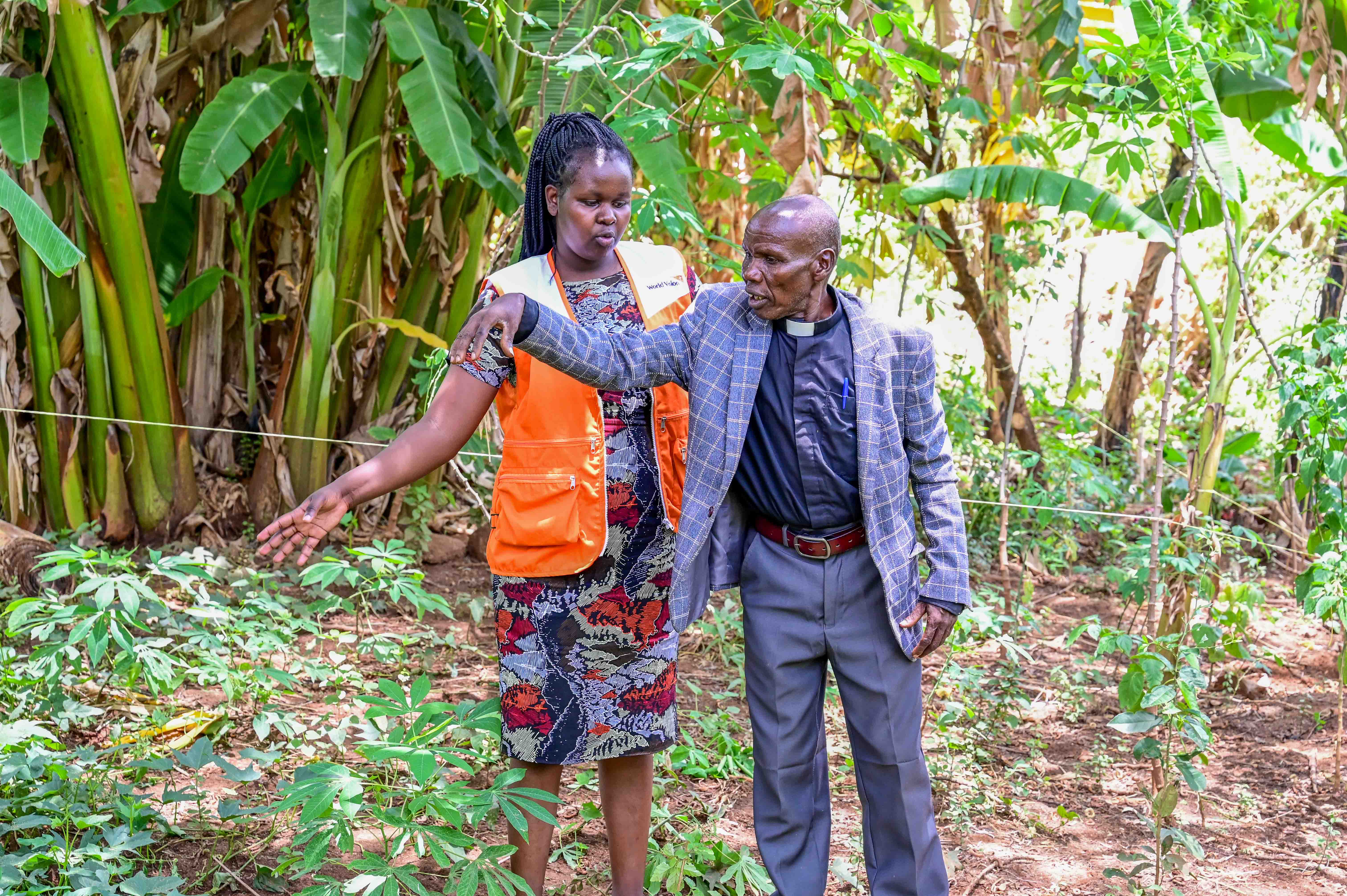
The County Government of Elgeyo Marakwet, through officers like Justus Kemboi, Agricultural Officer, Arror Ward has joined hands with World Vision to scale FMNR’s impact.
“FMNR has reduced insecurity by shifting focus from cattle rearing to food production. Malnutrition in children dropped from 26% to 5% thanks to kitchen gardens introduced through FMNR. We want every homestead to have at least 10 trees and are working to make the entire Arror Ward green by 2030,” says Justus.
Pastor Wilson is already contributing to that vision. In addition to his eighth-of-an-acre plot, he has set aside 5 acres of land for regeneration, fitted with 12 beehives, further diversifying his income through honey production. This is restored hope for the community in Arror; for regeneration and for improved living standards.
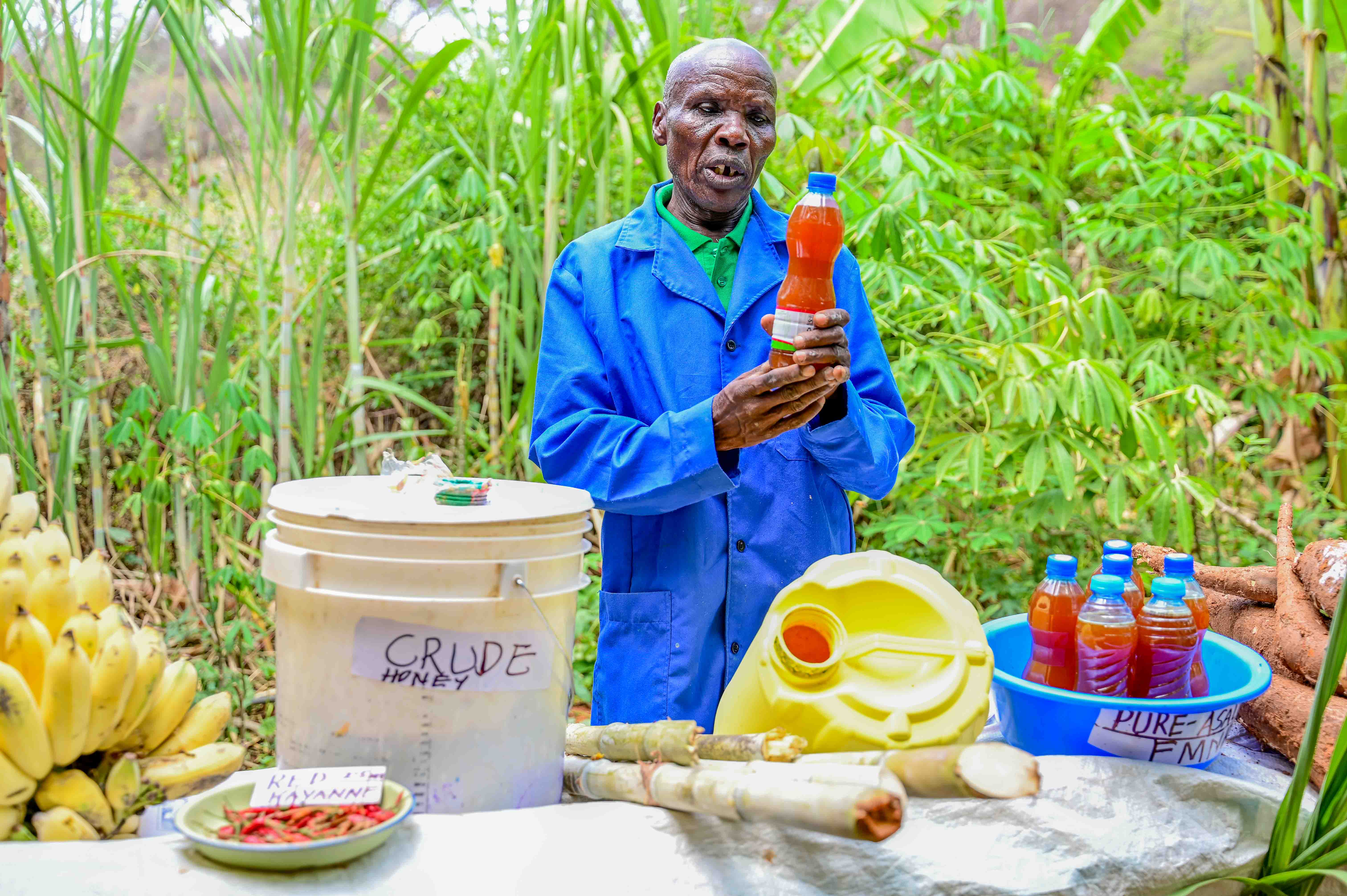
Referring to a quote from the Bible in Genesis 1:26, Pastor Wilson reflects, “God created man in His own image, a man who would manage His creation. Trees, plants, animals and all that is around us. Man was brought to protect and care for this environment.”
Thanks to the support of the Australian NGO Cooperation Program (ANCP) through World Vision’s CRIFSUP Project, more farmers like Pastor Wilson are transforming their minds, pockets and hearts thus reviving the hope for a better future.
By Hellen Owuor, Communications Specialist (CRIFSUP), World Vision Kenya